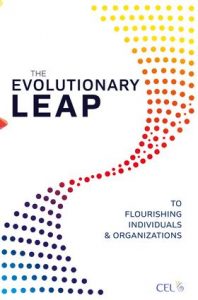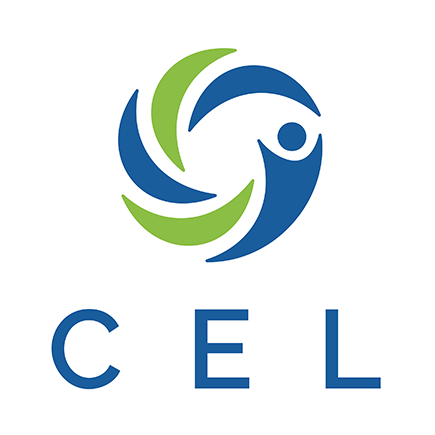Why Meditation
The Virtuous Cycle of Research and Learning
The CEL approach supports an evolutionary cycle between research and learning that allows continuous transformational change:
- highest quality academic research identifies organizational needs
- customized learning programs are developed from research results
- post-learning assessments to measure effectiveness of the learning programs
- learning about organizational evolution nurture highest quality academic research which in turn improves the design of learning programs
Key Insights from CEL Research
Neuroscience. The experience of mental silence meditation is connected with high levels of pleasure and with the rebalancing of emotional and cognitive processes.
Hernandez, S.E., Suero, J., Barros, A., Gonzalez-Mora, J.L., Rubia, K., "Increased grey matter associated with long-term meditation: A Voxel-Based- Morphometry study." PLOS ONE 11(3) (2016): e0150757.
Manocha R, Black D, Wilson L Functional Health and Quality of Life in Long Term Meditators, Evidence-Based Complementary Medicine, Evidence-Based Complementary Medicine.
Manocha R, Black D, Ryan J, Stough C, Spiro D, Changing Definitions of Meditation: Physiological Corollorary, Journal of the International Society of Life Sciences.
Aftanas, L., & Golosheykin, S. Human anterior and frontal midline theta and lower alpha reflect emotionally positive state and internalized attention: high-resolution EEG investigation of meditation. Neuroscience Letters 2001 Sep 7;310(1):57-60.
Aftanas, L. I., & Golocheikine, S. A. (2002). Non-linear dynamic complexity of the human EEG during meditation. Neuroscience Letters, 330(2), 143–146.
Medical science. Practitioners of mental silence meditation experience significantly lower levels of stress and enhanced mental and physical well-being compared to best available practices.
Manocha, R., Marks, G. B., Kenchington, P., Peters, D., & Salome, C. M. (2002). Meditation in the management of moderate to severe asthma: a randomized controlled trial. Thorax, 57(2), 110–115. Harrison, L. J., Manocha, R., & Rubia, K. (2004). Meditation as a Family Treatment Programme for Children with Attention Deficit-Hyperactivity Disorder. Clinical Child Psychology and Psychiatry. 2004; 9(4):479–497. Manocha R, Semmar B, Black D. A pilot study of a mental silence form of meditation for perimenopausal women. Journal of Clinical Psychology in Medical Settings. 2007; 14(3):266–273.Management. Managers exposed to meditation training show significant changes in their values system, emotional balance and decision making patterns towards responsible behavior and higher levels of social consciousness.
Zollo, M., Minoja, M., Casanova, L., Hockerts, K., Neergaard, P., Schneider, S., Tencati, A., “Towards an internal change management perspective of CSR: Evidence from project RESPONSE on the sources of cognitive alignment between managers and their stakeholders, and their implications for social performance.”, Corporate Governance, September 2009. Schneider, S., Zollo, M., Manocha, R., “Developing socially responsible behavior in managers: Experimental evidence on the effectiveness of different approaches to management education.”, Journal of Corporate Citizenship 39, September 2010. Crilly, D., Schneider, S., Zollo, M., “The psychological antecedents to socially responsible behavior.”, European Management Review 5(3), August 2008. Zollo, M., Winter, S., “Deliberate learning and the evolution of dynamic capabilities”, Organizational Science 13(3) (2002): 339-351.
CEL Publications
 “The Evolutionary Leap to Flourishing Individuals and Organizations”
“The Evolutionary Leap to Flourishing Individuals and Organizations”
Author: Center for Evolutionary Learning
© 2017 – Routledge
192 pages
About the Book
The last thing the world needs is yet another book delineating business-induced dangers and damages such as environmental disasters, social inequalities and unethical conduct.
And yet, success in achieving sustainable growth – whether for the individual, organization, or the social community – has mostly eluded us. Just as a compass needle moves to magnetic north, our deeply seated behaviors push us back to practices that are familiar and comfortable, even when we have sought to make a change to act in ways that are more sustainable.
How can we generate this deep and durable change in our values and beliefs, and thus both in our individual and collective decisions and behavior at work? How can we unveil the best of our human qualities by learning to raise our consciousness to a more profound perception of ourselves and our relationship with the whole? And what if such a change could lead to an ‘evolutionary leap’ to a lasting flourishing state for us and for our organizations?
This book describes how this shift in mindset and consciousness level can, and has indeed, taken place in organizations using meditative practice, not only for individual wellbeing (which is now well understood) but also for deep transformational change. Through this shift, we can move past a definition of sustainability as ‘mere resource efficiency and long-term survival’, to one of ‘sustainability-as-flourishing’. This book challenges many pre-conceived ideas about what a sustainably successful organization is and how it should be run. Based on a growing body of evidence – from neuroscience to business research – it maps out a path to empower all who wish to undertake this journey towards the realization of the highest potential in ourselves, our organizations, and our social and natural world.

